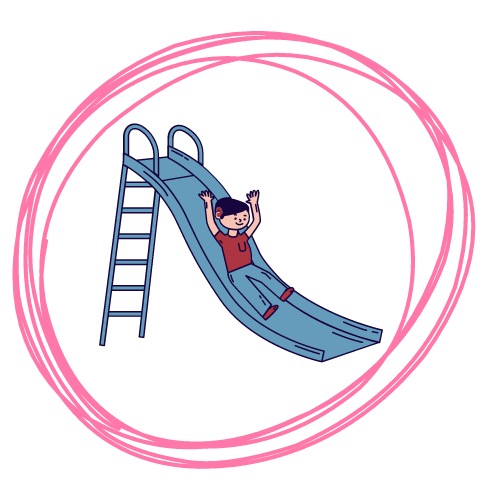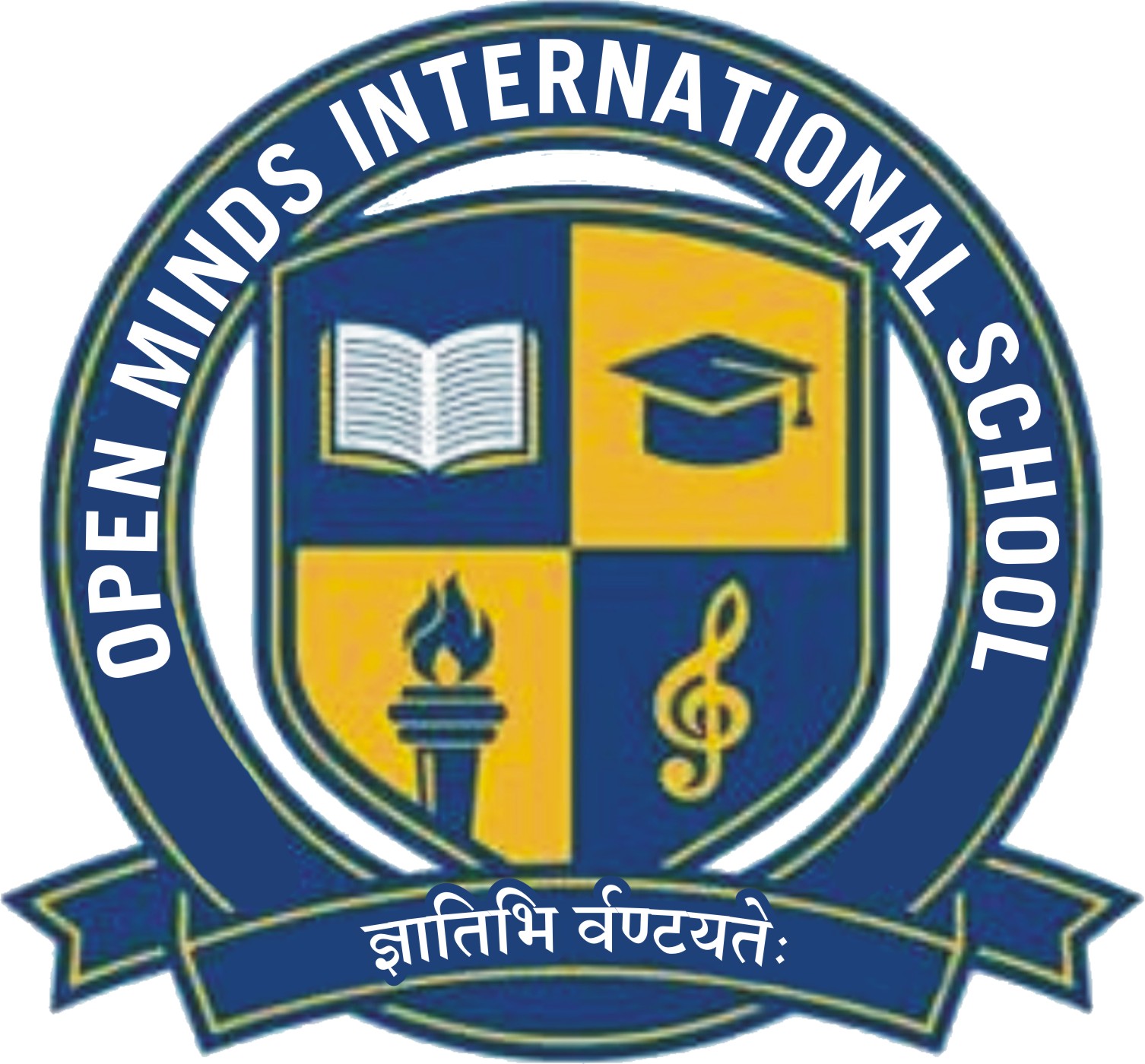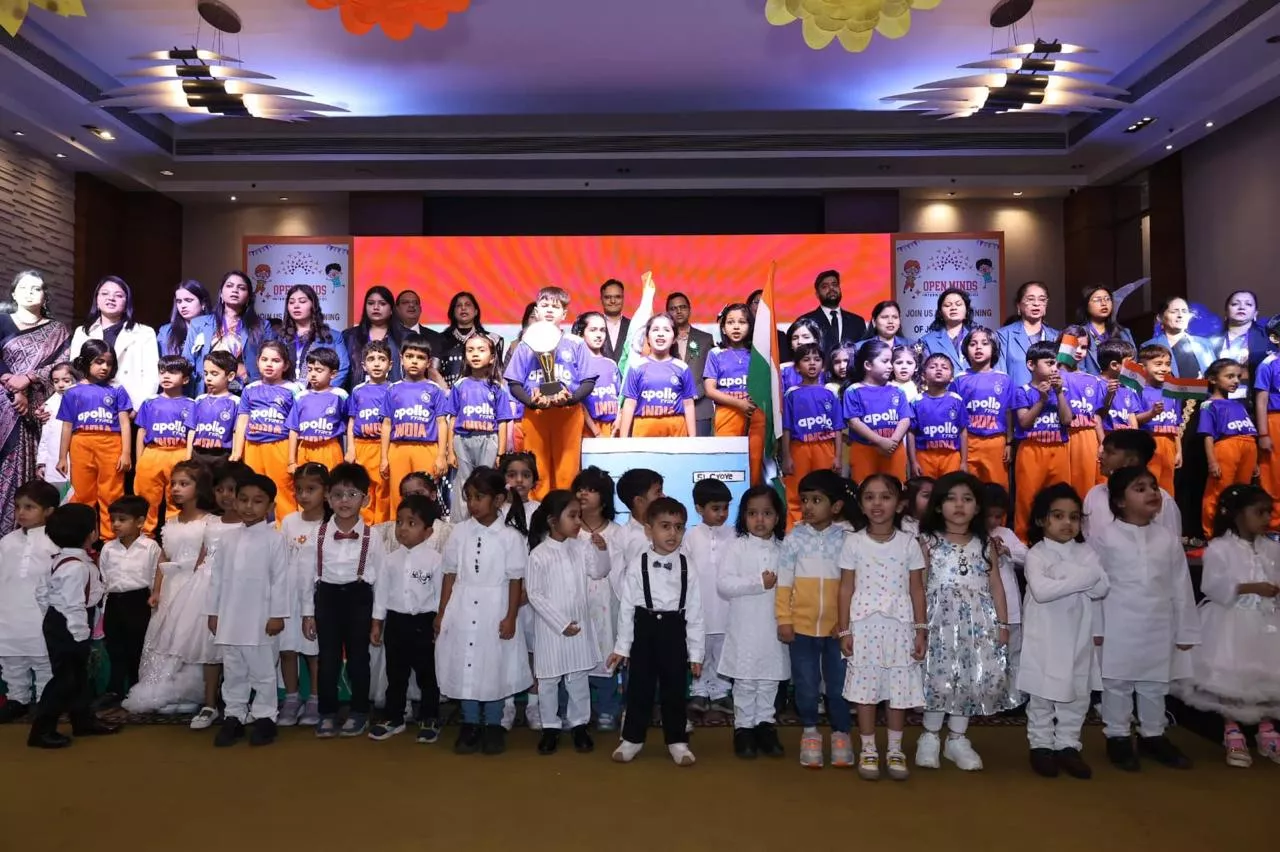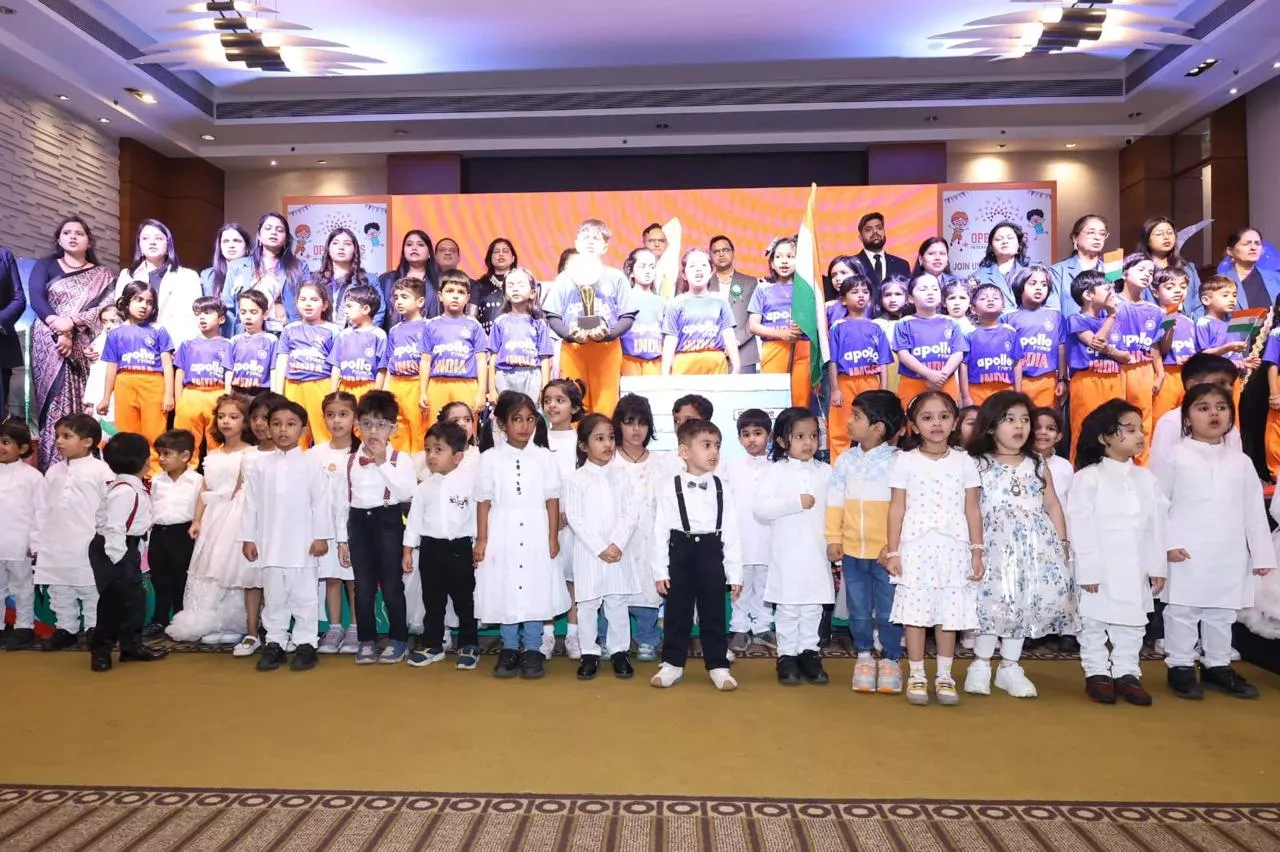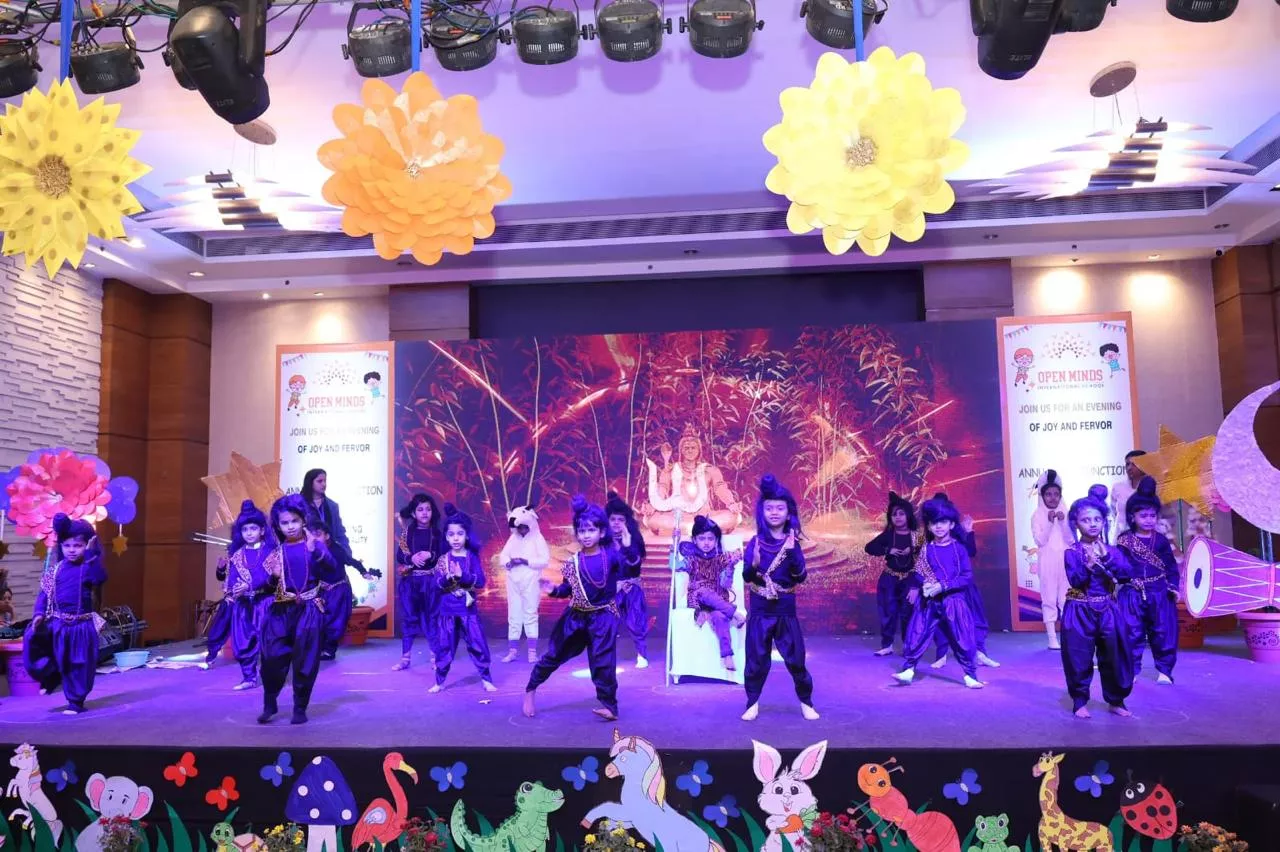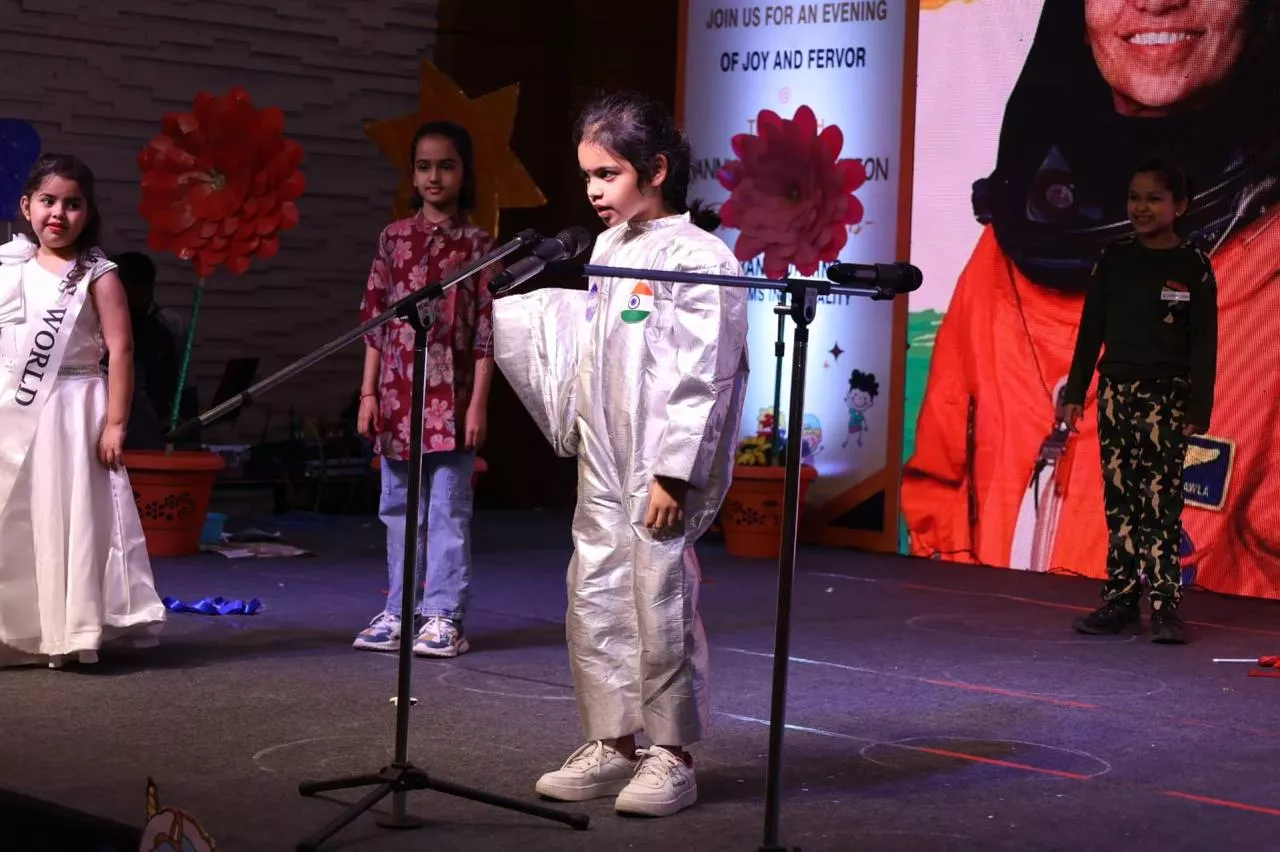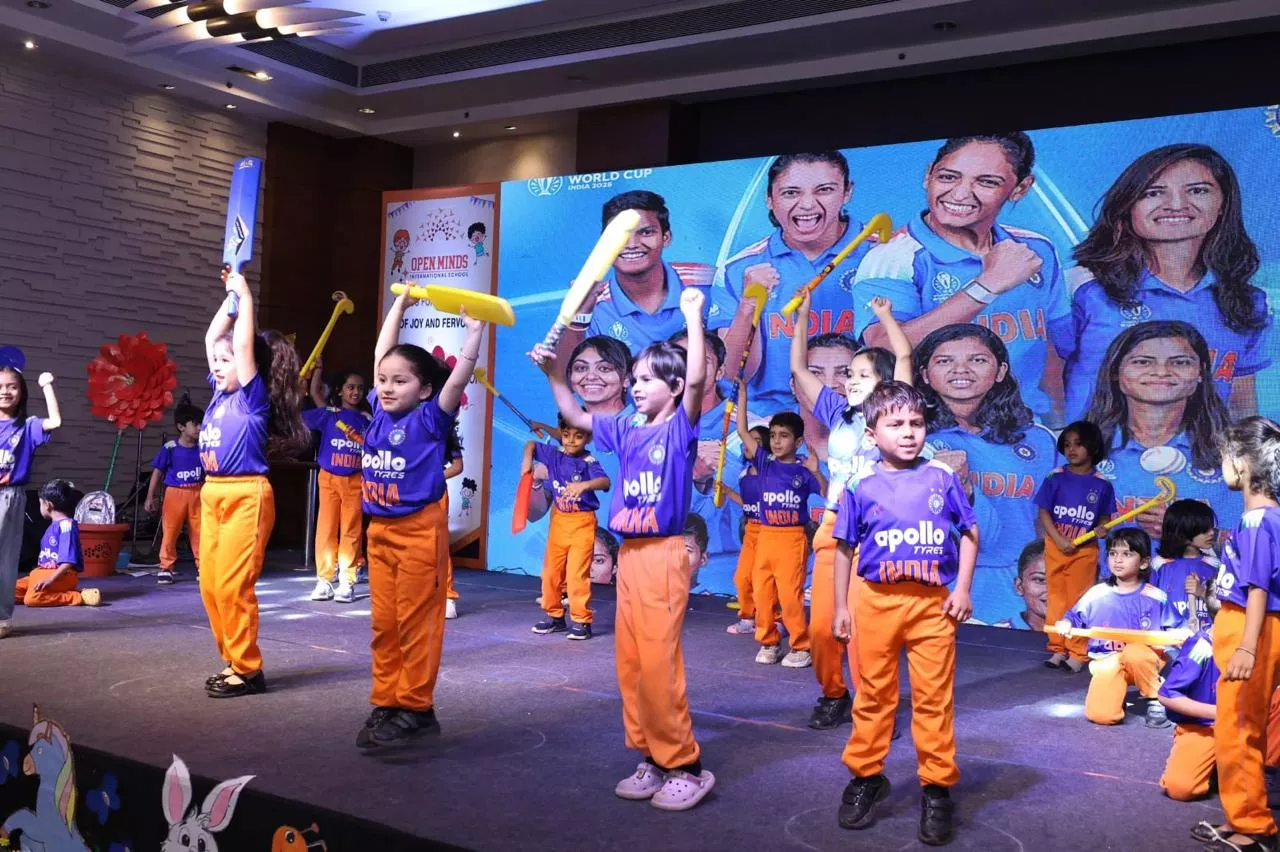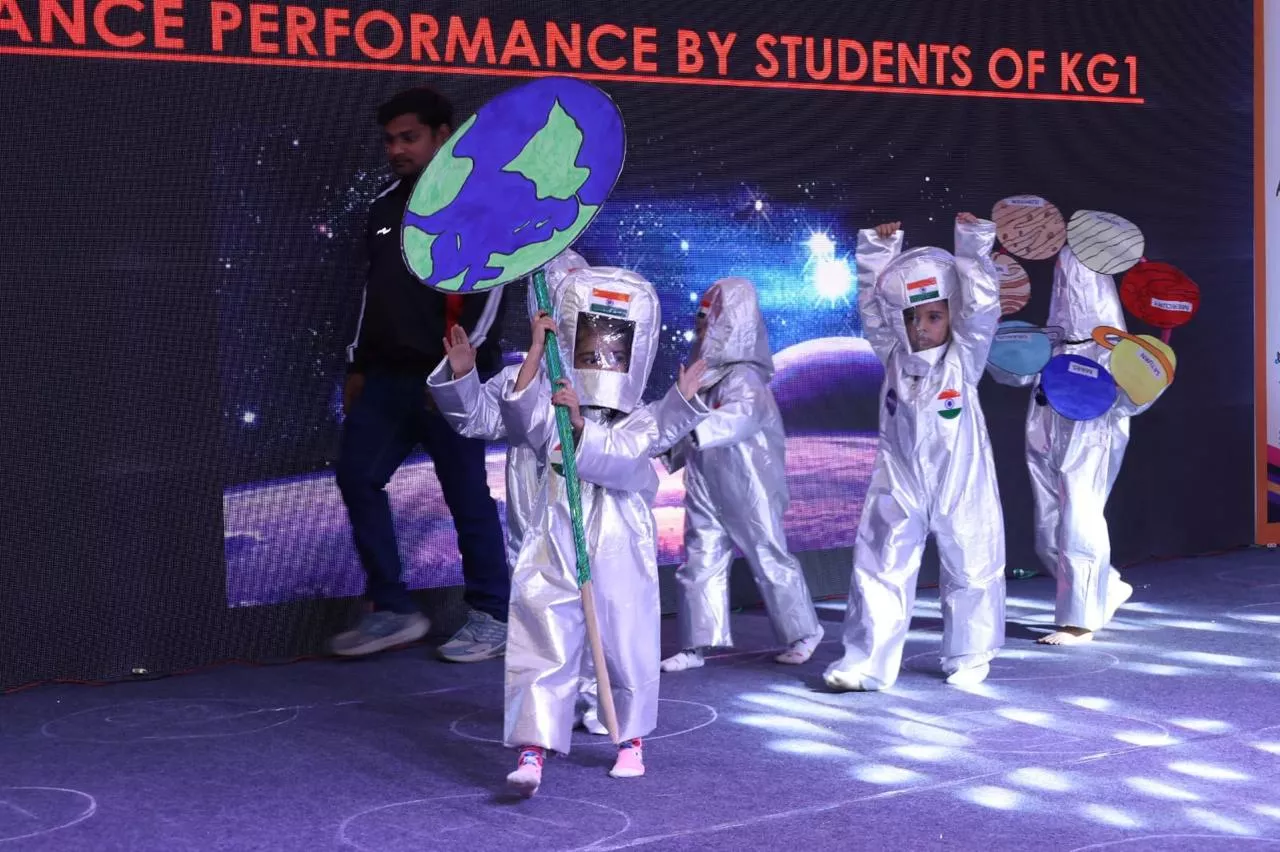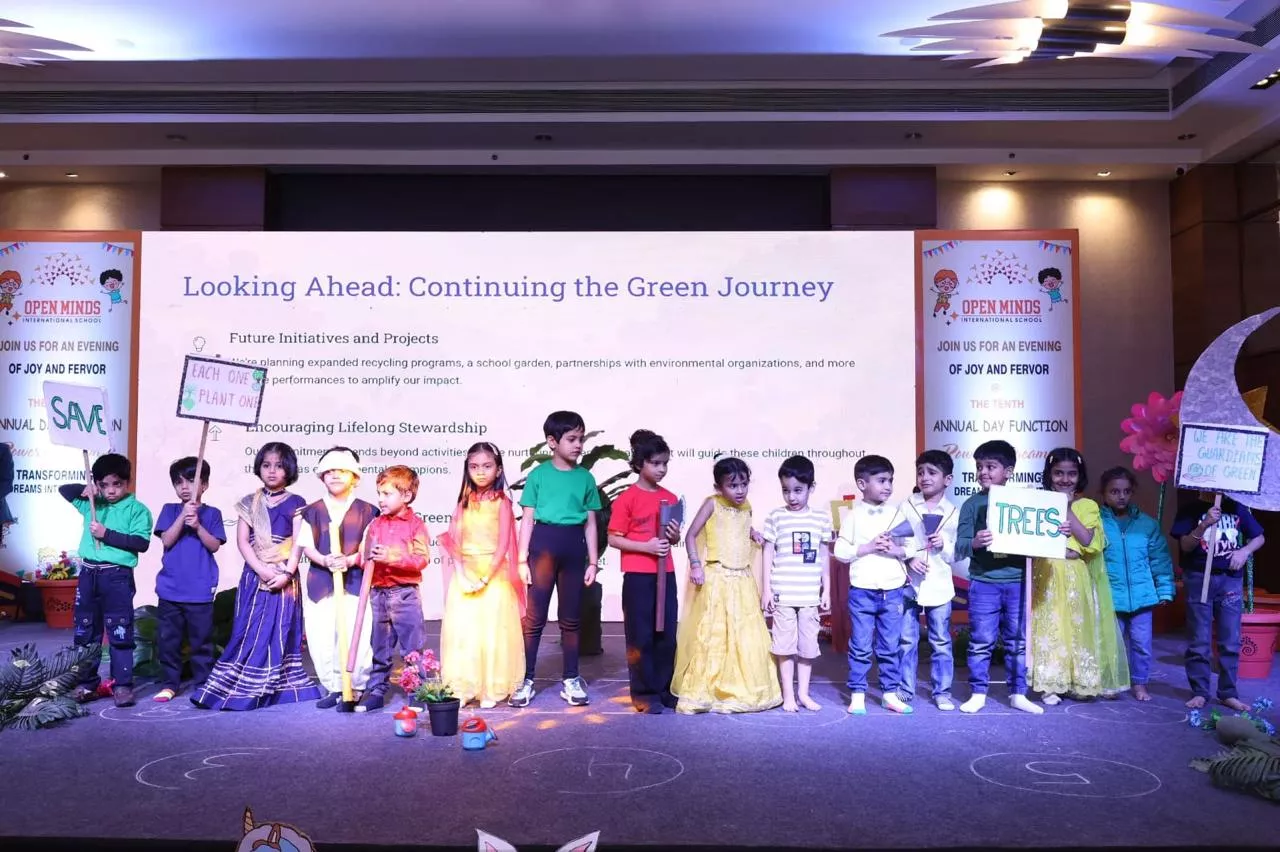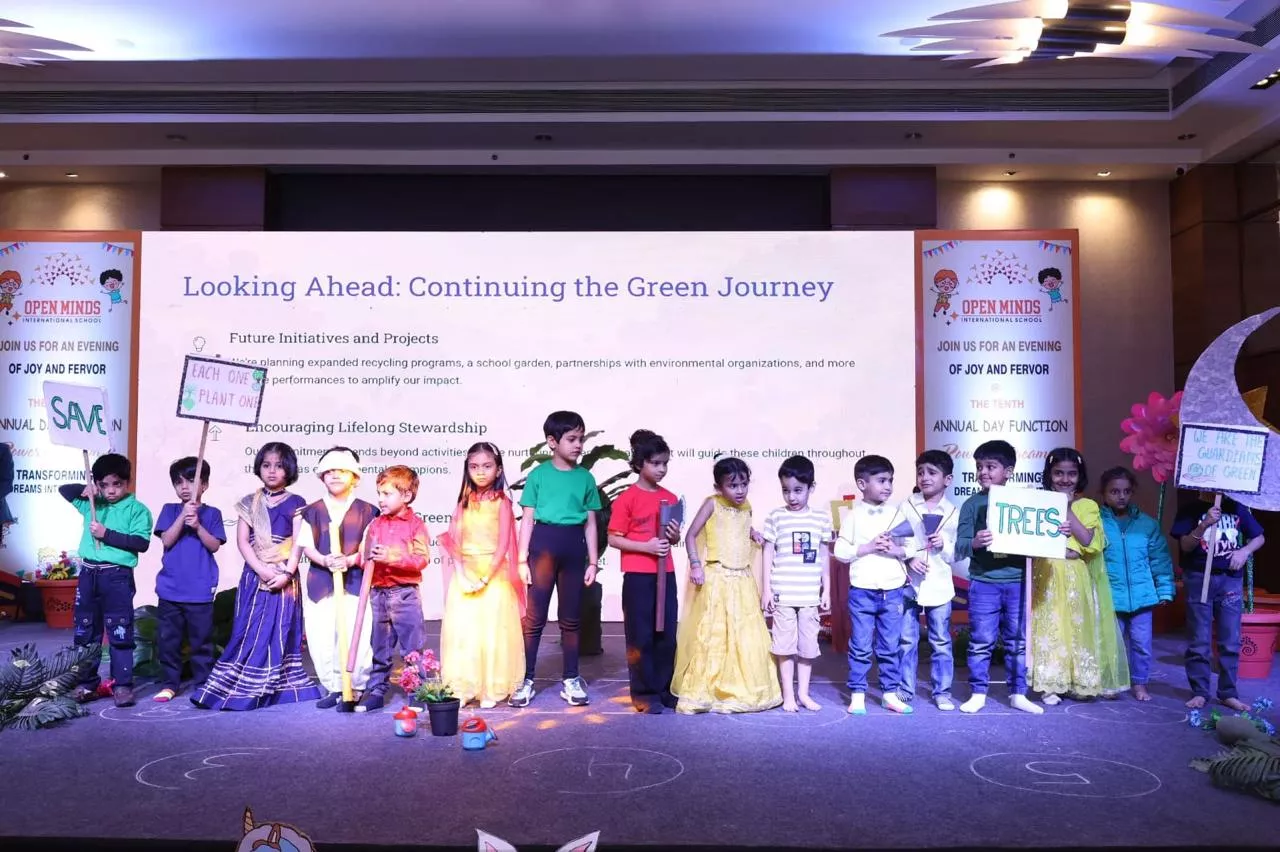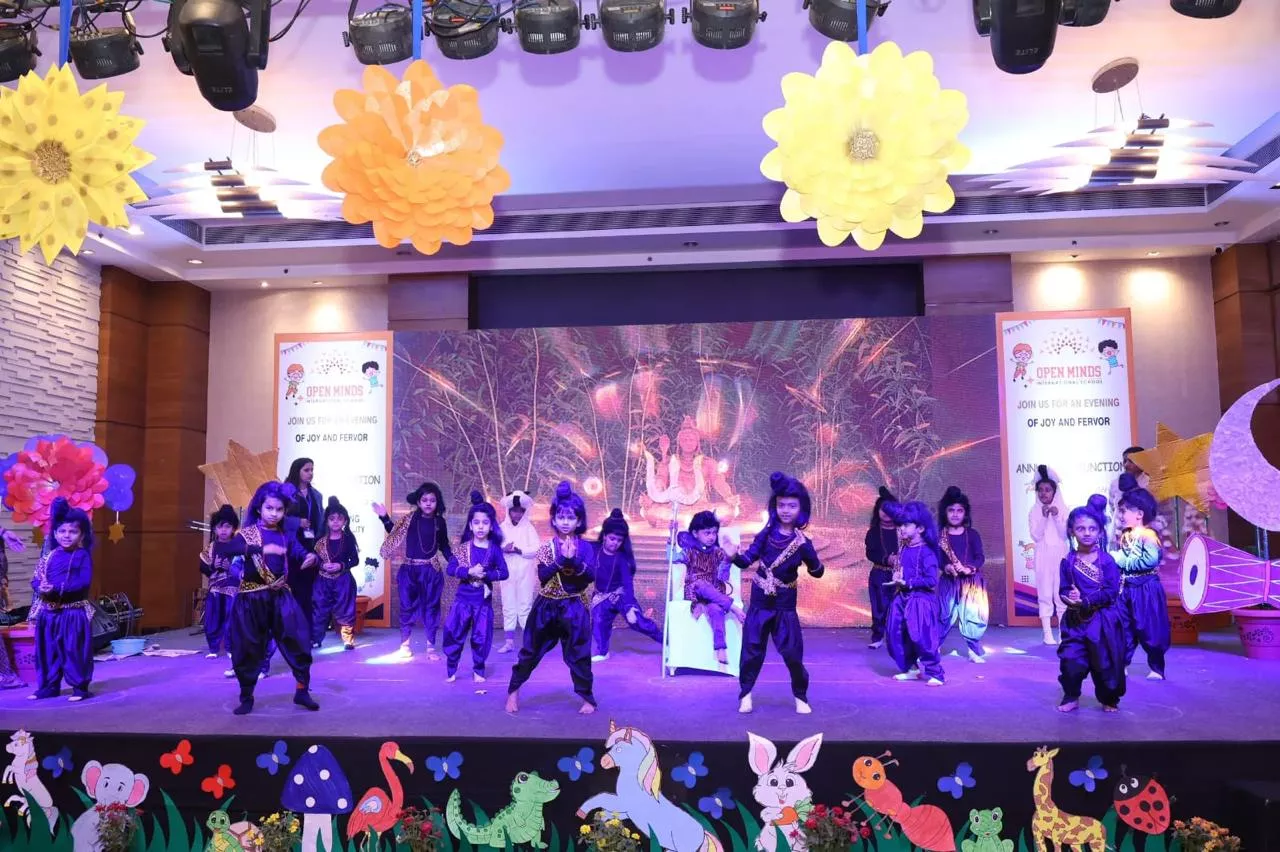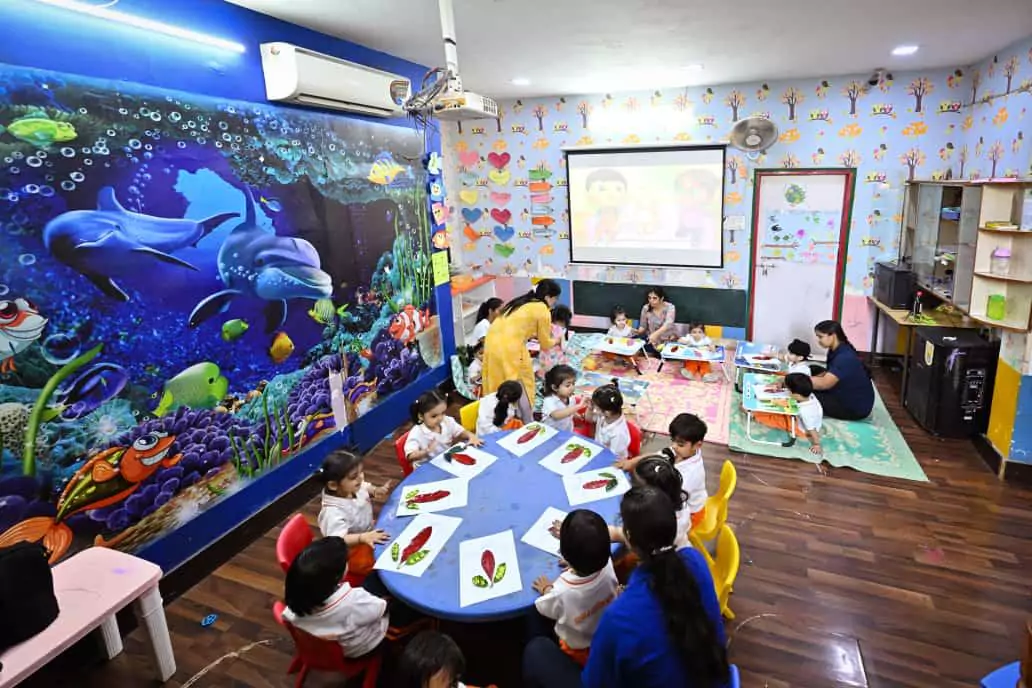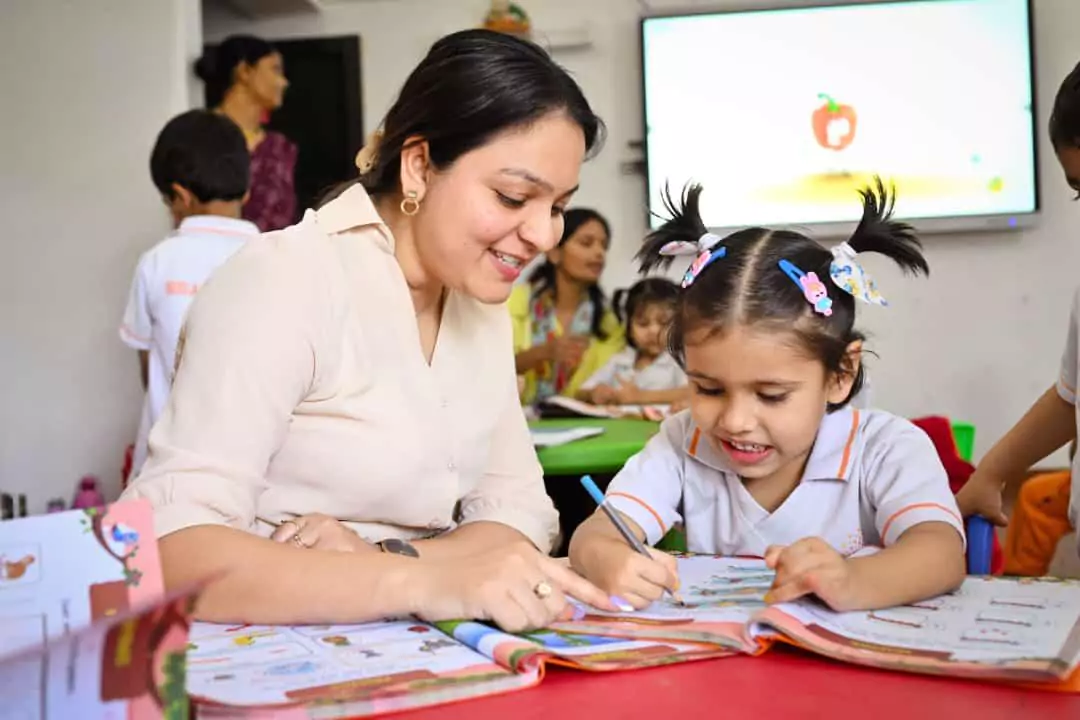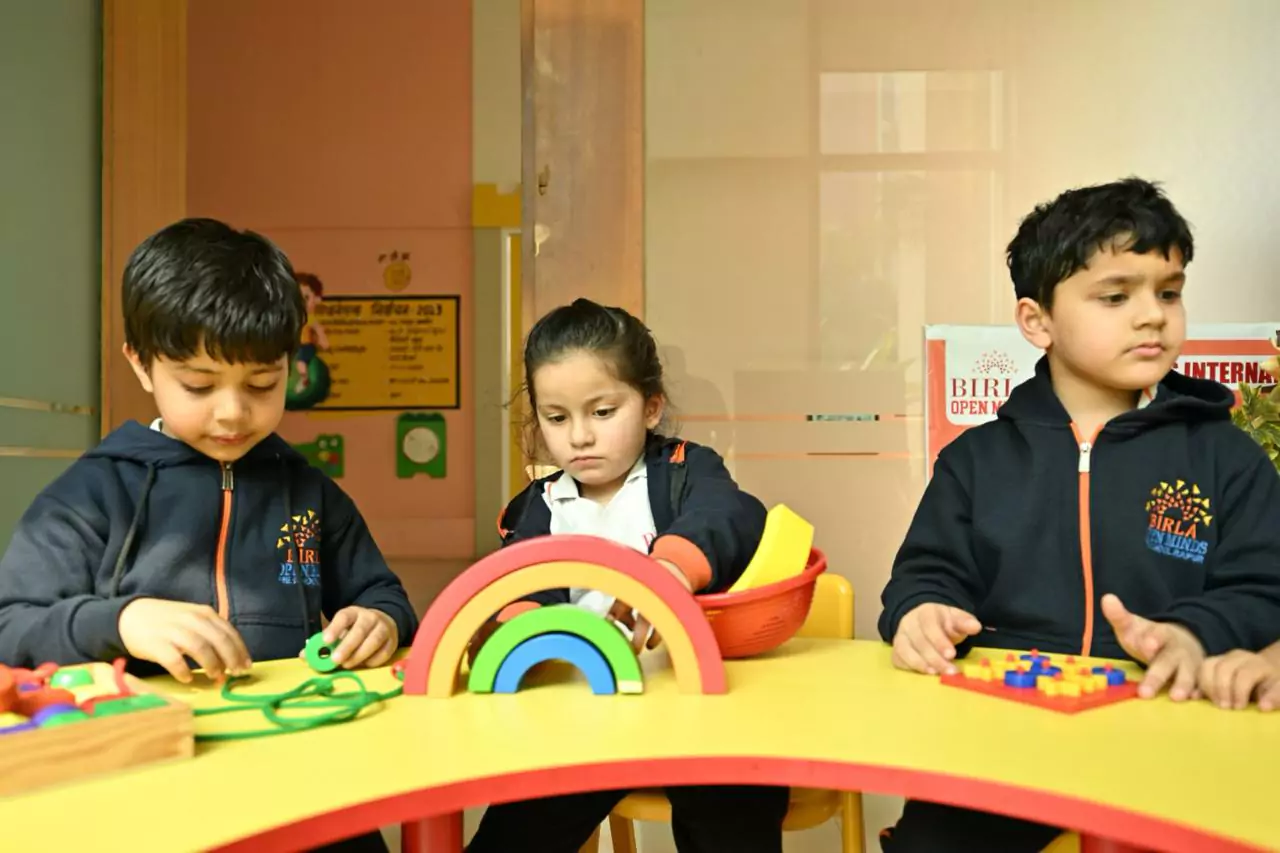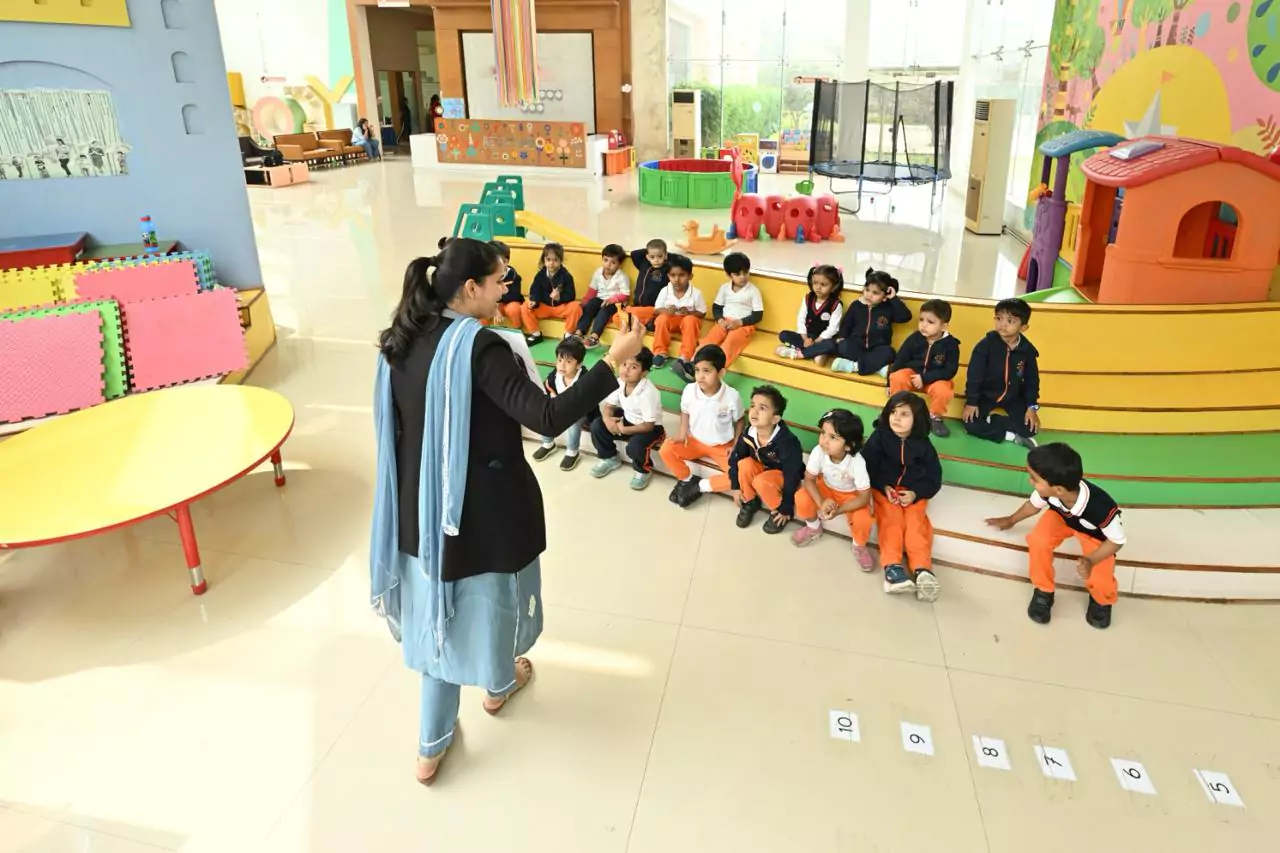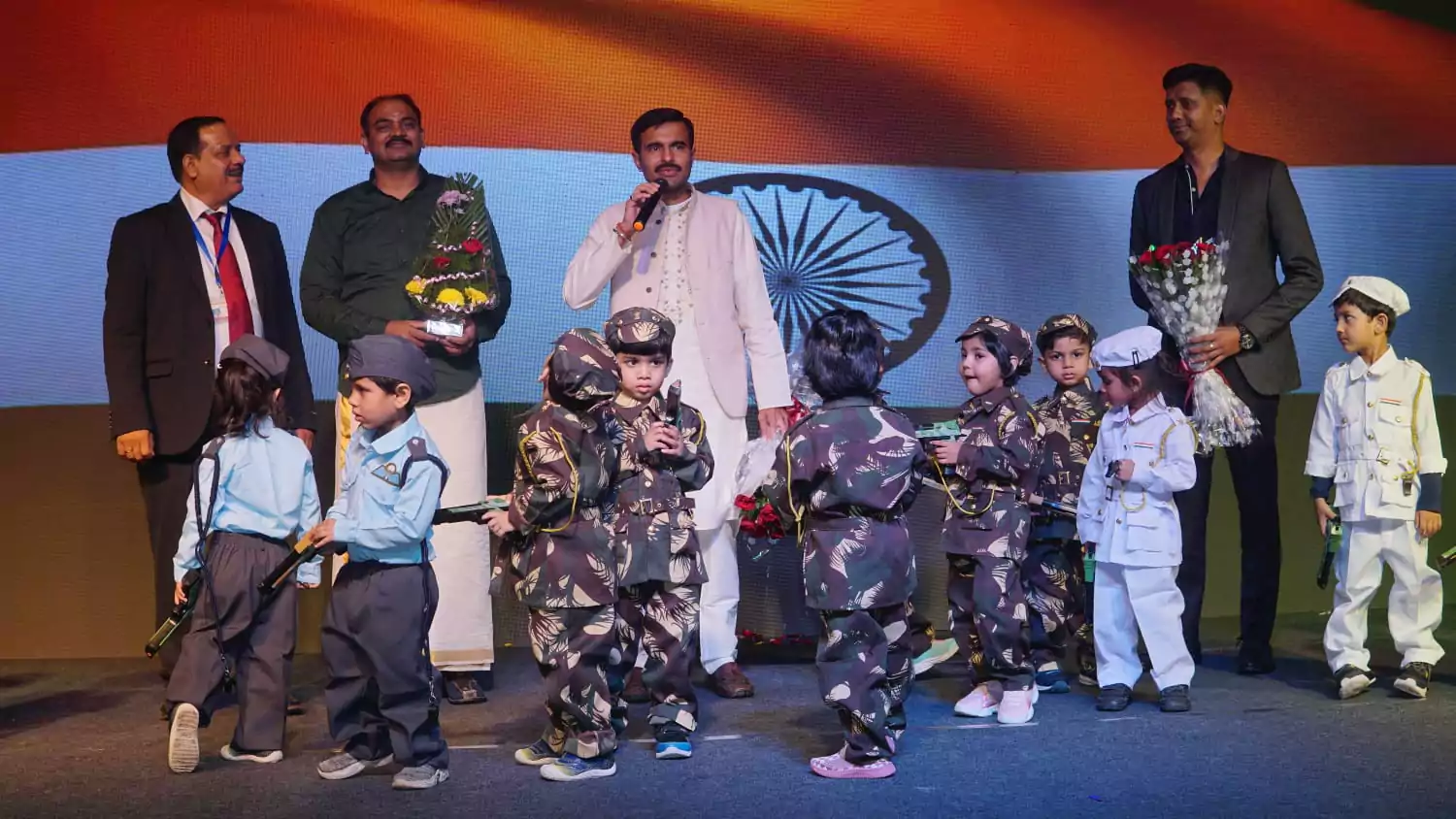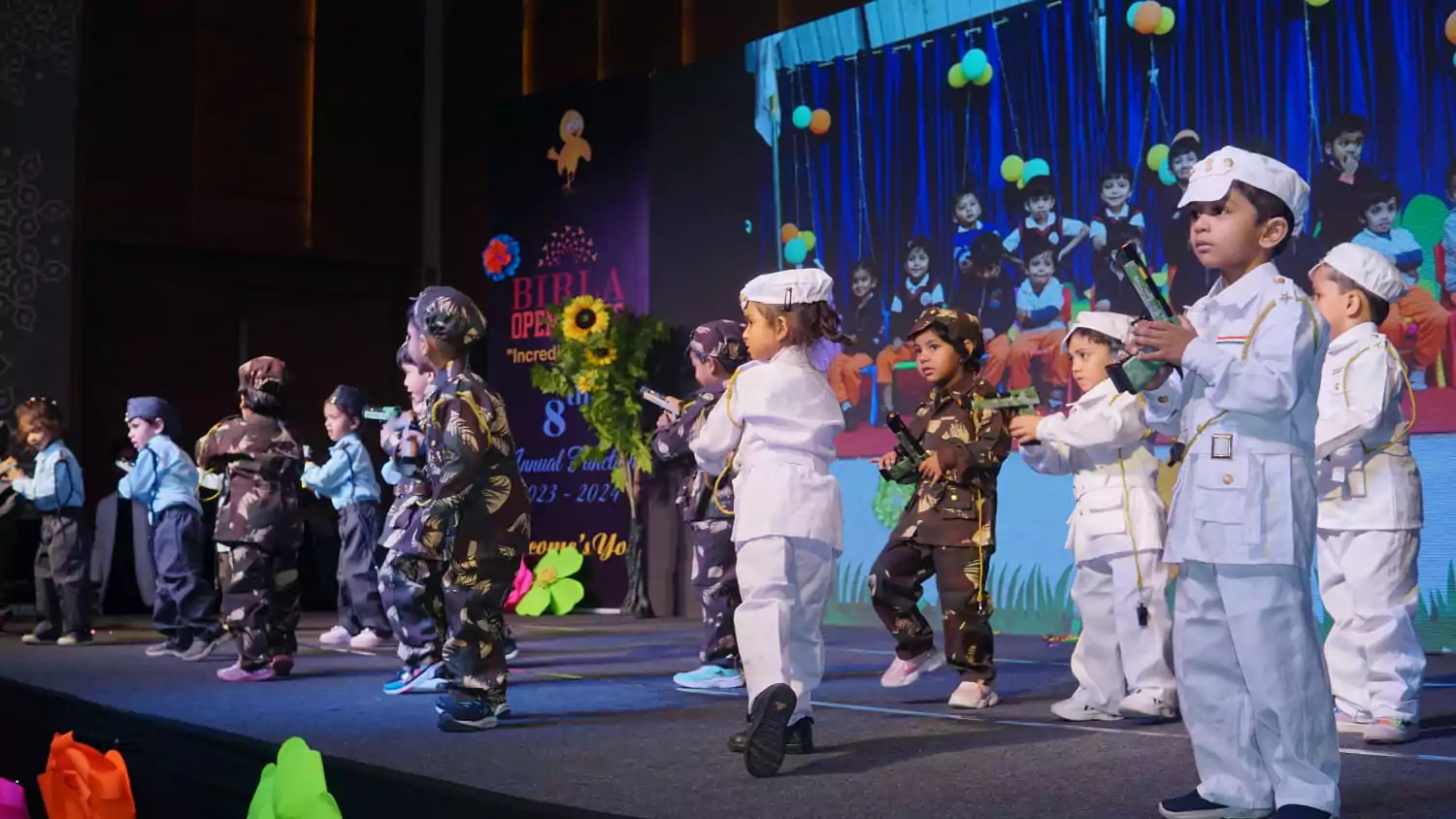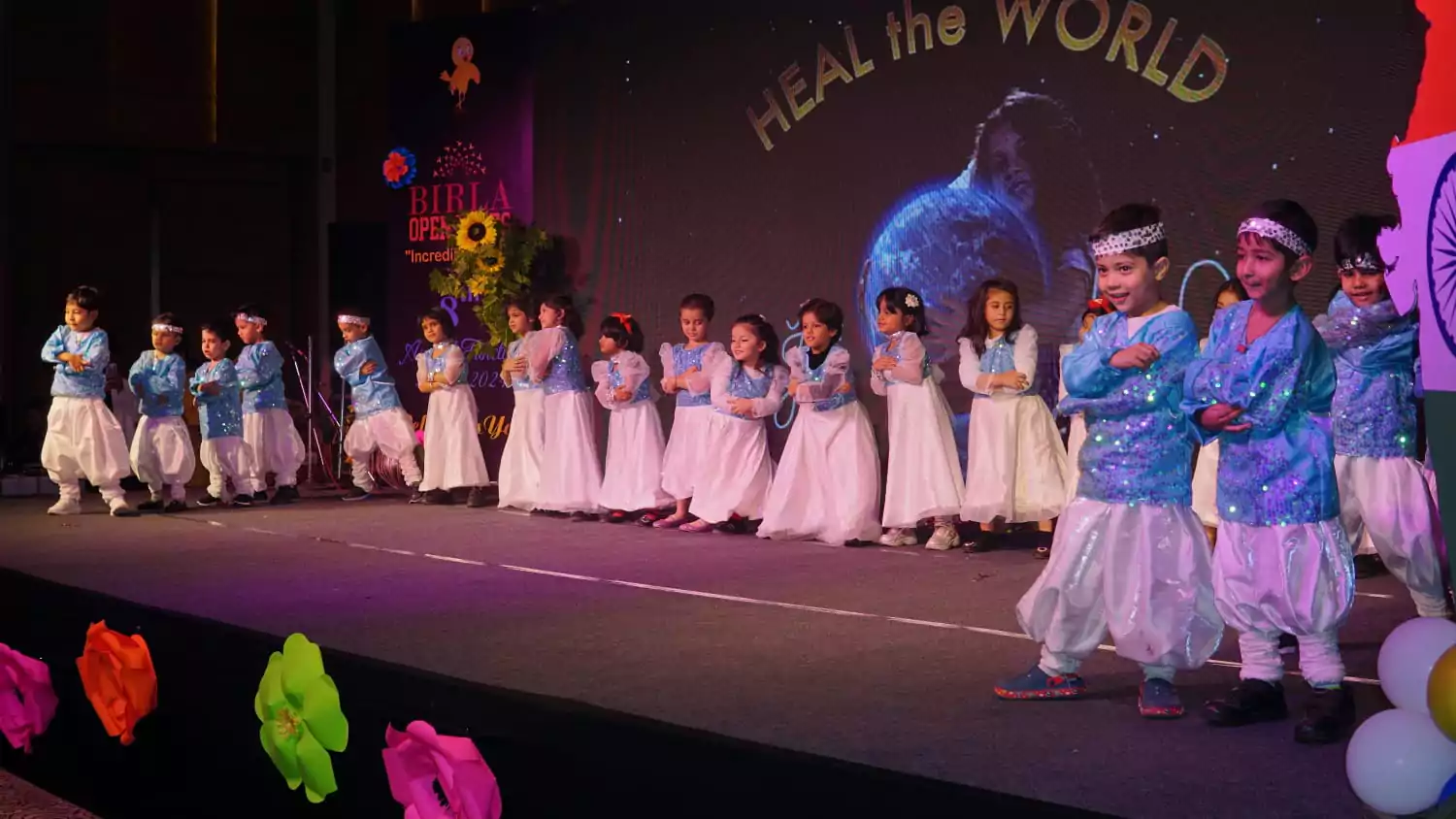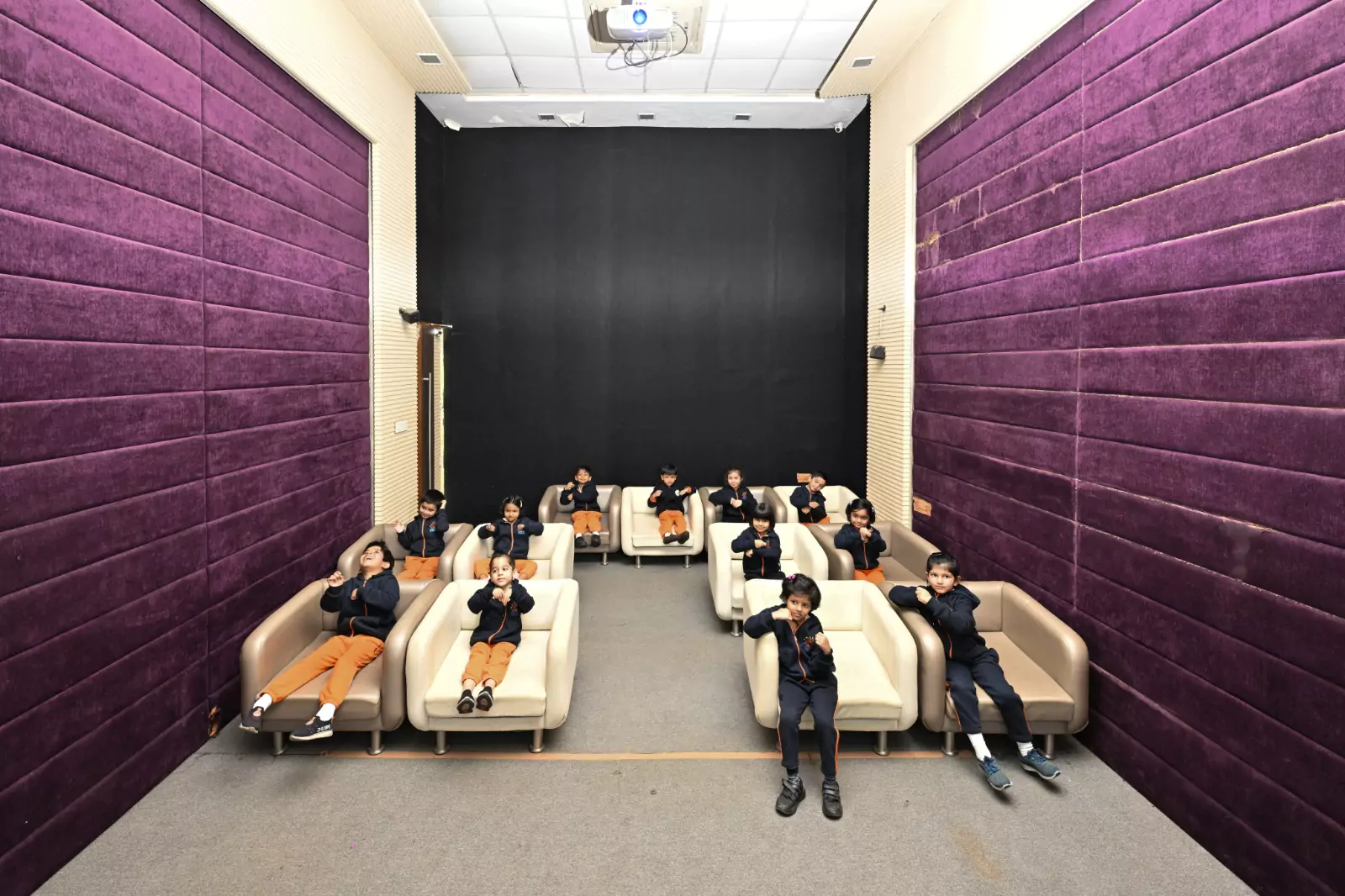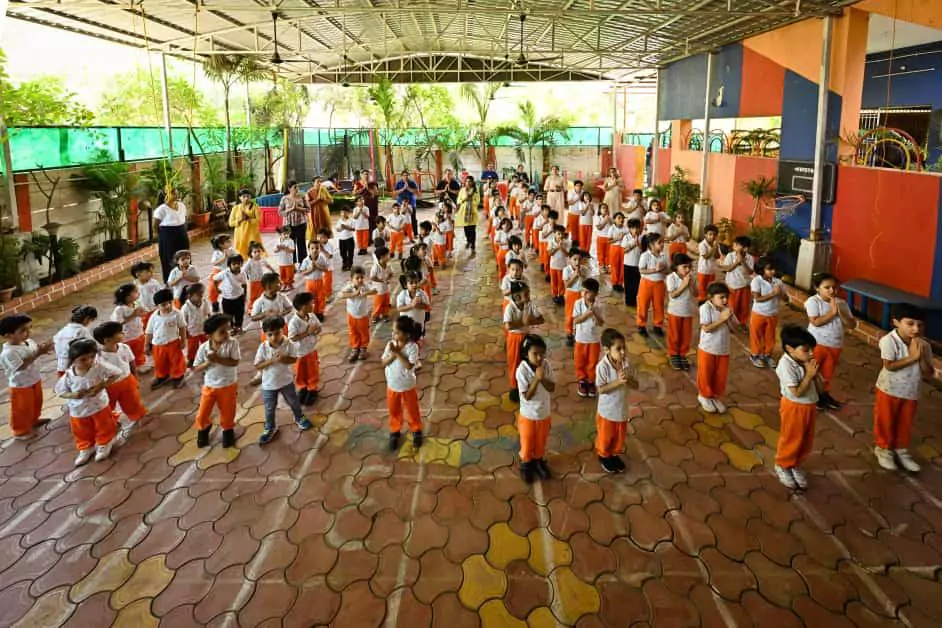Discover Our Programs

Pre-Nursery
Our Curriculum draws on research in Neuroscience and is developmentally appropriate, creative & integrated. It aims to instill care in children for self others and the environment

Nursery
The specially designed curriculum aims to maximise the children's creative potential and build their life skills to lead meaningful lives.

KG-1
Children are exposed to dynamic learning environments, and fruitful interactions with peers and teachers. Working with colours and textures engaging with music and movement and a plethora of other mediums along with ample freedom ensure nurturing of creativity in each child

KG-2
We introduce STEAM education, which refers to elements of Science, Technology, Engineering, Arts, and Mathematical skills development. Activities in the early years curriculum are planned by combining these elements together or focusing on one.

Grade 1 - Grade 5
The primary years curriculum is designed to nurture the child in all dimensions of his/her life, to bring out the essence of a holistic being. The curriculum aims to foster the development of key skills in communication, problem-solving, citizenship, critical thinking, inquiry, investigation, analysis, social awareness, personal awareness and collaboration.

Mother- Toddler Program
Specially designed program to help toddlers prepare for the ‘Pre Schooler’ phase. It’s usually a series of sessions spread over weeks, sometimes months to make sure kids feel confident enough to be able to face preschool without the comfort of having a known face around.
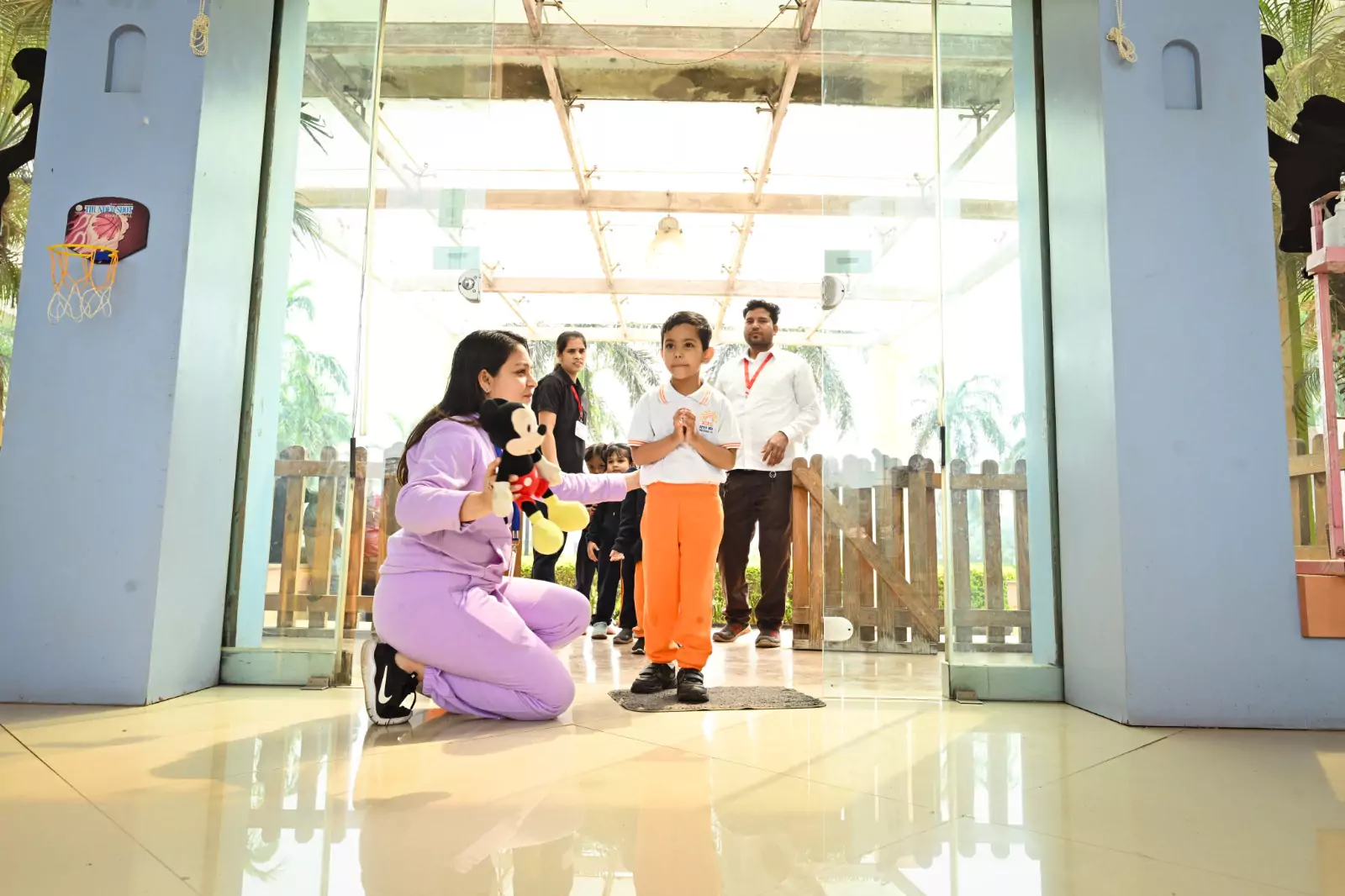

Vision Statement
Open Minds International School — a centre of academic excellence addresses the needs of the 21st century, by preparing individuals to become highly skilled, career oriented, economically independent and innovative, while also developing a sensitivity towards the economy, society and environment.
About Open Minds International School
Open Minds International School, offers comprehensive solution for education that envelopes the individual’s learning period right from the formative early years to K-12 schooling. Open Minds International School encompasses wide – ranging interests in the sphere of high quality education with dedication to excellence. The salient features of our curriculum is :
- Integrated and Thematic
- Individualized formative assessment
- Focus on learning through play
- Activity Based Learning
- Multiple Intelligence
- Experiential learning
- Value Based Education
- Developmentally Appropriate
- Systematic & Structured

Vision Statement
Open Minds International School — a centre of academic excellence addresses the needs of the 21st century, by preparing individuals to become highly skilled, career oriented, economically independent and innovative, while also developing a sensitivity towards the economy, society and environment.

Mission Statement
Open Minds is a unique school community that works in collaboration with students and parents to provide quality education in a positive and supportive environment. The school achieves this goal by creating and implementing a world class curriculum that ensures that children are healthy, safe, disciplined, engaged, supported, challenged and prepared for the rigors of the current century.

The Resolve
With a legacy of nation-building and high-quality education in India, the name “Open Minds International School' is synonymous with the 4 Cs – Care, Co-operation, Collaboration and Courtesy. The Open Minds school family is renowned for its focus on education, and its rich heritage of business and philanthropy is reflected in all their endeavours. A diverse and researched curriculum, integrated learning opportunities with well-planned schedules and operations are the main features of the school.
A peek a boo in our class
Morning Greeting
During this teacher say small good morning rhyme using puppets. This helps to have social interaction, learn new vocabularies and helps them to settle in the school environment. Every morning routine may look a little different according to your parent toddler curriculum requirements.
Circle Time
This starts with reading the calendar (date, day and year) and weather of the day. Introduce a letter, shape, colour, number or theme; and have Show & Tell. A small gist about a different things that will be done in the class.
Jumping Jacks Time
This time will keep your kids active and provide a means to increase their physical stamina and fitness, strengthen their muscles and bones and build immunity. Engaging in outdoor activities builds the right foundation for children so that they become more productive and well-rounded adults in the future.
Snack Time
Snack time is a great opportunity to interact with peers and try new food. Learners try to discover their food through careful tasting, smelling, and touching.
Learning Stations /Sensory Motor Time
During center time learners work with their parents in small groups which helps to enhance their fine motor and skills. As said by Maria Montessori “The senses being, the explorer of the world, open the way to knowledge.” Different activities are planned by the teacher accordingly to their plan of the day. Learners explore different centers as they move around the classroom.
Jiggy Wiggy Time
During jiggywiggy time learners learn about music, musical instruments, and rhymes. Rhymes are a child’s first experience with words. When actions are linked to words in the rhyme, it helps boost motor skills and improves rhythm and movement. Improves memory, concentration, spatial intelligence, and thinking skills.
Reflection and Closing Circle
Closing circle is an effective strategy for bringing closure to the school day in a fun and meaningful way. By ending the day on a refreshing, reflective note, closing circle reinforces the sense of reflection and safety that teachers strive to develop.
Block Time
Blocks help children learn to take turns and share materials, develop new friendships, become self-reliant, increase attention span, cooperate with others, and develop self-esteem. Development in all areas. Block play requires fine and gross motor skills.
A peek a boo in our class
During this teacher say small good morning rhyme using puppets. This helps to have social interaction, learn new vocabularies and helps them to settle in the school environment. Every morning routine may look a little different according to your parent toddler curriculum requirements.
This starts with reading the calendar (date, day and year) and weather of the day. Introduce a letter, shape, colour, number or theme; and have Show & Tell. A small gist about a different things that will be done in the class.
This time will keep your kids active and provide a means to increase their physical stamina and fitness, strengthen their muscles and bones and build immunity. Engaging in outdoor activities builds the right foundation for children so that they become more productive and well-rounded adults in the future.
Snack time is a great opportunity to interact with peers and try new food. Learners try to discover their food through careful tasting, smelling, and touching.
During center time learners work with their parents in small groups which helps to enhance their fine motor and skills. As said by Maria Montessori “The senses being, the explorer of the world, open the way to knowledge.” Different activities are planned by the teacher accordingly to their plan of the day. Learners explore different centers as they move around the classroom.
During jiggywiggy time learners learn about music, musical instruments, and rhymes. Rhymes are a child’s first experience with words. When actions are linked to words in the rhyme, it helps boost motor skills and improves rhythm and movement. Improves memory, concentration, spatial intelligence, and thinking skills.
Closing circle is an effective strategy for bringing closure to the school day in a fun and meaningful way. By ending the day on a refreshing, reflective note, closing circle reinforces the sense of reflection and safety that teachers strive to develop.
Blocks help children learn to take turns and share materials, develop new friendships, become self-reliant, increase attention span, cooperate with others, and develop self-esteem. Development in all areas. Block play requires fine and gross motor skills.
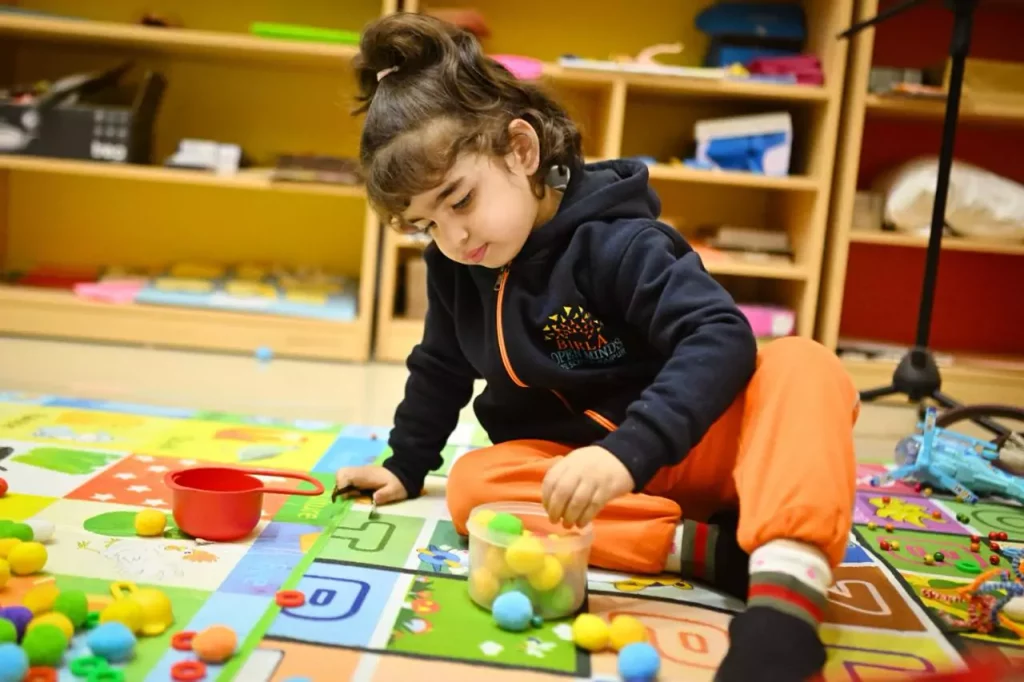
Facilities
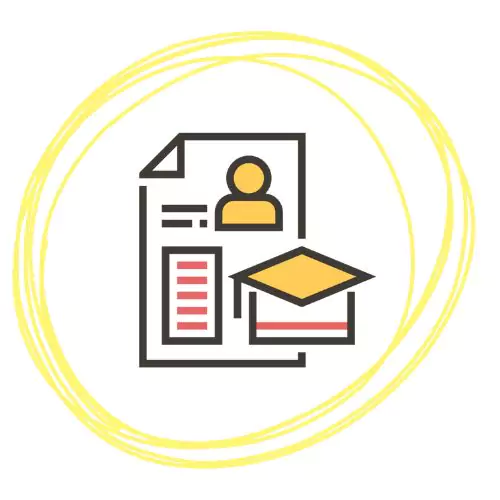
Systematic & Structured Curriculum
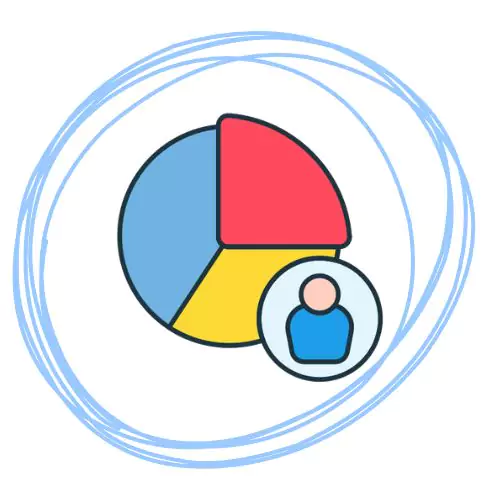
Teacher & Student Ratio- 1:8
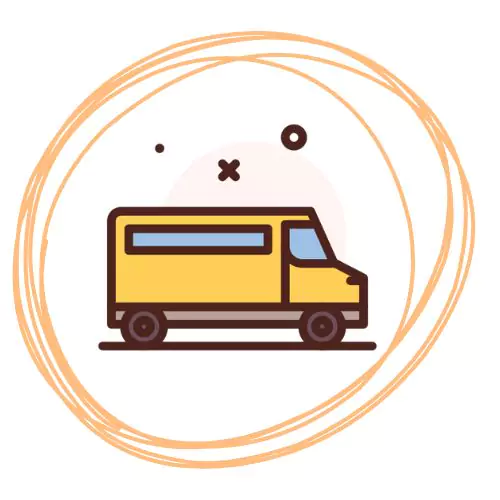
Air Conditioned Pick Up Van Facility
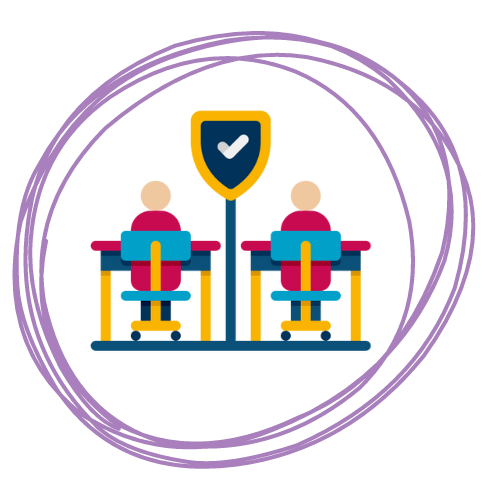
Child Friendly Classroom
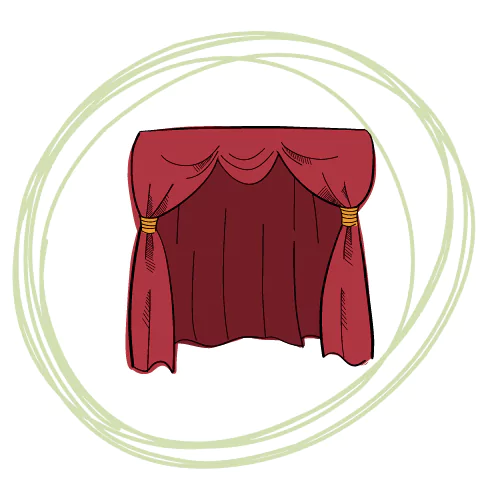
Amphitheatre
